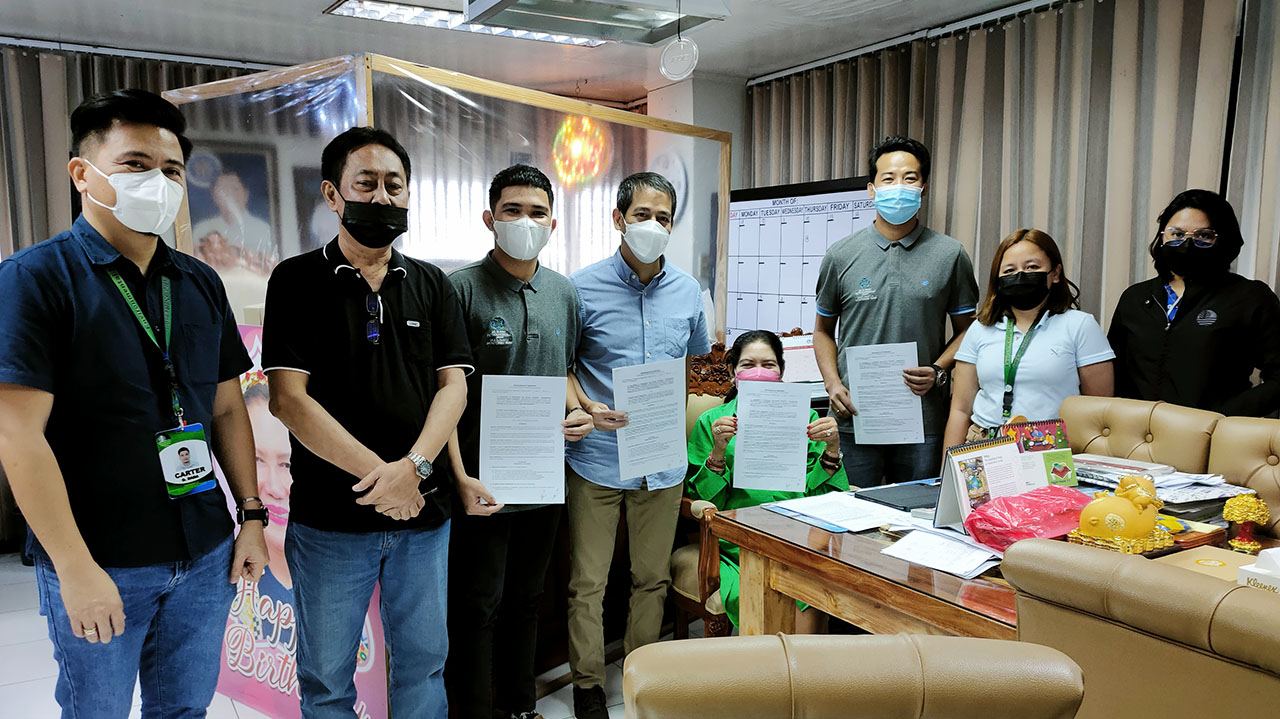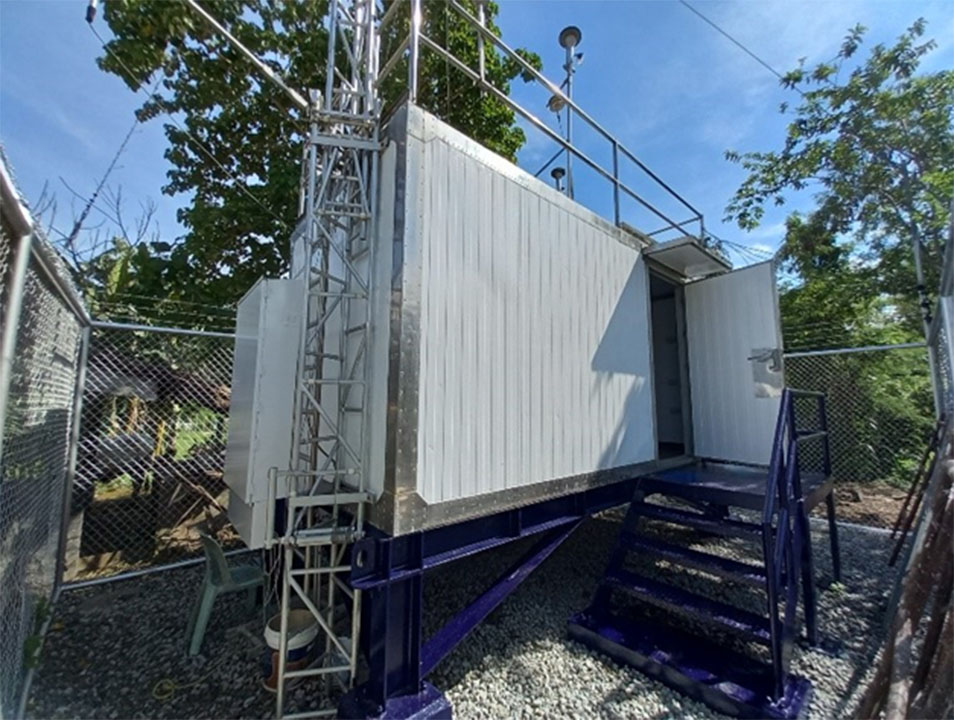In support of the government’s campaign to improve the air quality in Batangas City, JG Summit Olefins Corporation (JGSOC) signed a memorandum of agreement with the Environmental Management Bureau–CALABARZON for the “Adopt an Ambient Air Quality Monitoring Station” project.
A primary government agency operating under the Department of Environment and Natural Resources, the EMB is mandated to “formulate, integrate, coordinate, supervise, and implement all policies, plans, projects and activities relative to the prevention and control of pollution, as well as the management and enhancement of the environment.”
JGSOC’s partnership with the EMB aims to rehabilitate the Continuous Ambient Air Quality Monitoring Station (CAAQMS) in Barangay Bolbok, Batangas City, which will monitor the air quality in the city and determine future air pollution reduction measures.
Representing JGSOC at the MOA signing on December 14, 2022, was Ralph Joseph Roy, Director for Government Affairs and Special Projects, who signed on behalf of JGSOC President and CEO Patrick Henry C. Go. On the government side were EMB Regional Director Noemi Paranada, Engr. Jessie Conde, EMB Chief of Environmental Monitoring and Enforcement, and Engr. Carter Daba, OIC of Air Quality Monitoring.
 JGSOC representatives led by Director for Government Affairs and Special Projects Ralph Joseph Roy, Mark Ian Capuloy, and Fredrick John Gamboa with Environmental Management Bureau-CALABARZON Regional Director Noemi Paranada (seated), EMB Chief of Environmental Monitoring and Enforcement Engr. Jessie Conde, Engr. Carter Daba, Faina Ifurung, and Vanessa Atienza at the MOA signing last December.
JGSOC representatives led by Director for Government Affairs and Special Projects Ralph Joseph Roy, Mark Ian Capuloy, and Fredrick John Gamboa with Environmental Management Bureau-CALABARZON Regional Director Noemi Paranada (seated), EMB Chief of Environmental Monitoring and Enforcement Engr. Jessie Conde, Engr. Carter Daba, Faina Ifurung, and Vanessa Atienza at the MOA signing last December.
JGSOC has earmarked approximately Php 3.5 million for the project, which will go toward the rehabilitation of the CAAQMS equipment housing and the installation of an environmental analyzer for Particulate Matter 10 (PM10) with meteorological sensors. The said sensors can monitor the presence of suspended particulate matter of 10 microns (PM10) in the air. For comparison, the cross-section of a human hair is between 50 and 70 microns. PM10 is usually composed of pollutants from wildfires and waste burning, dust from construction sites, landfills, and agriculture, particles of airborne pollen, and microbes.
Monitoring PM10 is critical because particulates of this size are more likely to deposit on the surfaces of the larger airways of our lungs’ upper region. Particles deposited on the lung surface can induce tissue damage and cause lung inflammation. By accurately measuring the amount of particulates in the air, steps to remedy excess levels when they occur can be taken more quickly.
 Under the MOA, JGSOC will sponsor the rehabilitation of the DENR-EMB's Continuous Ambient Air Monitoring Station located at the Batangas Provincial Veterinary Office in Brgy. Bolbok, Batangas City. IMAGE Courtesy of JGSOC
Under the MOA, JGSOC will sponsor the rehabilitation of the DENR-EMB's Continuous Ambient Air Monitoring Station located at the Batangas Provincial Veterinary Office in Brgy. Bolbok, Batangas City. IMAGE Courtesy of JGSOC
After a period of one year from the installation and operation of the PM10 environmental analyzer, JGSOC has the discretion to donate the equipment to the DENR-EMB.
At the MOA signing, EMB Regional Director Paranada extended her appreciation for the support provided by JGSOC on DENR-EMB CALABARZON’s initiatives and programs. Under this partnership, the shared goals of JGSOC and the DENR-EMB toward environmental protection, preservation, and sustainability in Batangas City have been strengthened.
According to JGSOC representatives, this project perfectly complements the company’s other ongoing environmental initiatives in Batangas province, particularly in Batangas City, where the JGSOC plant facility complex is located. Among these are the One-Million Tree project, the Artificial Reef Project, and the regular Batangas Bay coastal clean-up. These are actively participated in by employee volunteers to improve the environment and contribute to the health and well-being of residents in the province’s communities.
JGSOC has also installed two other CAAQMS units to monitor the air quality of the barangays in the vicinity of JGSOC’s Batangas facilities, has put up air pollution control devices and thermal oxidizers in the plant’s equipment, maintains a safe buffer zone, and conducts tree-planting activities inside the plant complex along with other reforestation and “carbon sink” programs. Carbon sinks are places that absorb more carbon than they release.
Part of JGSOC's commitment is to incorporate sustainability in its business model to ensure that it contributes to the protection and improvement of the environment – especially in the areas where it operates its business – by partnering with various stakeholders to support or develop environmental initiatives that are sustainable and create meaningful impact on society.
For more information on JGSOC, visit jgspetrochem.com


